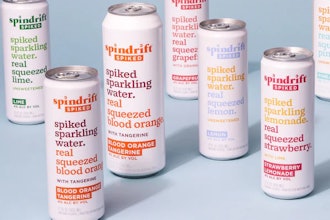
ROCKVILLE, Md., March 14, 2018 (PRNewswire) — Could the iconic Easter egg someday hatch into an Easter gift basket? The U.S. food gifting industry is banking on it, as food gift companies seek more holidays and special occasions to expand into, according to market research firm Packaged Facts in the new report Food Gifting in the U.S.: Consumer and Corporate, 6th Edition.
Packaged Facts forecasts overall U.S. consumer and corporate food gifting sales will approach $20 billion in 2018, up 4 percent from 2017. The market benefits from consumers giving food gifts to others — as well as to themselves — across a multitude of occasions ranging from anniversaries to graduations to birthdays. Among seasonal holidays, winter holidays such as Christmas remain a food gifting mainstay: more than half of those who have purchased food gifts for others in the last 12 months have done so for the winter holidays. Valentine's Day and Mother's Day are also popular food gifting holidays.
Roughly 26 million consumers — or 20 percent of food gifters — gave food gifts to others during Easter, putting the religious holiday just below Father's Day in terms of food gifting participation. With such relatively modest participation, why are food gifting companies so eager to expand into Easter? Frankly, it's because there are billions of dollars at stake as Easter has proven to be a holiday during which consumers are willing to spend. Those celebrating Easter last year spent an estimated $18 billion on products spanning eight categories, including candy, gifts, food, and flowers, with $152 spent per celebrant. Food and candy comprised more than $6 billion of consumers' Easter spending.
Further, some 81 percent of adults age 18+ (205 million people) celebrated Easter in 2017, almost eight times as many who have purchased an Easter food gift for someone. This suggests that there is a substantial untapped market for food gift companies to target.
Packaged Facts also counsels that for holidays such as Easter with religious roots, food gifting marketers may need to adapt to shifts in religious affiliations over time: for example, the percentage of adults identifying as Christian Church Disciples of Christ has grown 11 percent during the 2008-2017 period; and growth among non-Christian groups (Muslim and Hindu, for example) has also been strong. Conversely, some 22 percent of adults say they have no religious preference, up 40 percent during 2008-2017. These trends provide opportunity to target accordingly.
Packaged Facts also advises remembering to market products not just for kids, but also for adults. For example, look at how (chocolate company) Green & Black has targeted adults in the home with its far trade Organic Easter Tasting Collection
"Food gifting marketers need to continue inventing and reinventing food gifts and to keep a watchful eye for ways to broaden holiday-related purchase rationales," says David Sprinkle, research director for Packaged Facts.
Hallmark, traditionally known for gift cards, is just one company already on the path seeking opportunities to expand in the food gift market. The company has expanded into several food categories over time, including candy chocolate, baking and drink mixes, and tea. It even has namesake candy products, a smart way to build brand awareness among new customers and to harness brand power among current ones. Hallmark even is offering Sour Gummi Bunnies Candy as one of at least a dozen different Hallmark-branded Easter candies available for the 2018 season.
About the Report
For this report, food gifts are defined as food items that are packaged in a way that is suitable for gifting. Food gifts must be purchased; a food item prepared at home and given to someone is not included. There are two types of food gifts: 1) Gift-packaged candy – includes boxed chocolates, other gift-packaged chocolate and non-chocolate gift-packaged candy; and 2) Specialty food gifts – gift-packaged foods other than candy/chocolate. Food gifts range from baskets of treats to eat while watching football to food gift baskets at Christmas or birthdays. Food gifts can be purchased for any occasion or no occasion, for someone else or for oneself. While some food gifts, particularly assortments, may include beverages such as coffee or alcohol, those products as stand-alone gifts are excluded from this report. Food baskets refer to pre-packaged assortments of foods and beverages, not consumer-assembled baskets of these items.
View additional information about Food Gifting in the U.S.: Consumer and Corporate, 6th Edition, including purchase options, the abstract, table of contents, and related reports at Packaged Facts' website: https://www.packagedfacts.com/food-beverage-market-c84/.
About Packaged Facts
Packaged Facts, a division of MarketResearch.com, publishes market intelligence on a wide range of consumer market topics, including consumer demographics and shopper insights, consumer financial products and services, consumer goods and retailing, consumer packaged goods, and pet products and services. Packaged Facts also offers a full range of custom research services.






















